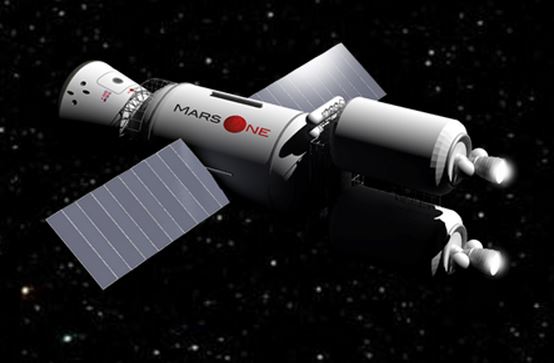It started off with 202,586 applicants hoping to join the one-way voyage to Mars and being part of a permanent settlement, but now stands at just 100 in the next round of the Mars One Astronaut Selection Process.
The 100 applicants from all over the world are now one step closer to becoming the first humans to set foot on Mars … they will also stay there for the rest of their lives.
Co-founder & CEO of Mars One, Bas Lansdorp, said:
“The large cut in candidates is an important step towards finding out who has the right stuff to go to Mars. These aspiring Martians provide the world with a glimpse into who the modern day explorers will be.”

The successful candidates will be undergoing their first training in a simulated Mars Settlement on Earth, to determine whether they are suitable for the mission. (Image: Mars One)
The successful candidates in the 100-shortlist were selected from a pool of 660 applicants after taking part in personal online interviews with the Mission’s Chief Medical Officer, Norbert Kraft, M.D.
During the one-on-one interviews, the applicants had a chance to demonstrate their understand of the huge risks involved, team spirit and their motivation to become part of this life-changing voyage.
Dr. Kraft said:
“We were impressed with how many strong candidates participated in the interview round, which made it a very difficult selection.”
100 people from all over the world
Fifty males and fifty females successfully passed the second round. Thirty nine are from the Americas, thirty-one from Europe, sixteen from Asia, seven from Africa, and seven from Oceania.
Details of the successful candidates can be found at Mars One Round Three Candidates.
The shortlisted-100 still face further challenges. In the selection rounds that are still to come, the focus will be on finding team members who can endure all the hardships of living and working in a settlement on Mars.
There is a copy of the Mars Outpost on Earth (photo above), where they will receive their first shot at training. Assessors will be examining their suitability to perform well in a team.
Dr. Kraft said:
“Being one of the best individual candidates does not automatically make you the greatest team player, so I look forward to seeing how the candidates progress and work together in the upcoming challenges.”
Those who applied but failed to be selected in this round, will have an opportunity to re-apply in a new round that will open this year. New application opportunities will follow in order to train applicants that can replace eliminated teams and join the crews of settlers that will travel from Earth to live in Mars.

The Mars One team designed a mission using just existing technology to get a colony of humans onto Mars, and staying there in a permanent settlement. (Image: Mars One)
The Mars One Mission – A crazy dream?
Scientists the world over say the Mars One project is a pipe dream with absolutely no chance of success, one that will likely end in disaster.
If NASA does not envisage placing a human on Mars for some decades, how can a crowd-funded private enterprise claim to settle a whole village of humans on the Red Planet by 2024?
The Mars One team of scientists says that although its Mission project is complex, they are convinced it is definitely feasible. They insist that the science and technology required to place humans on the Red Planet and keep them there already exist.
Video – Hannah makes it to 100 Mars shortlist
Hanna, a 23-year old English Ph.D. student at Durham University, has made it to the Mars 100 shortlist. Hanna said “Space travel has been a dream of mine for a very long time, and now I have the opportunity for something even bigger. Mars is a challenge. It is highly risky, and an enormous responsibility as well as an adventure, and I hope to do it justice. And I want to share my journey with all of you! Follow me on hannahgoestomars.tumblr.com and feel free to say hello!
On its website, Mars One writes:
“Much of what was learned from Skylab, Mir and the International Space Station has resulted in vital data, experiences with systems and related know-how – all of which are applicable to living on Mars.”
“Mars One is not the first organization to ponder upon the idea of a manned mission to Mars. Blueprints of a Mars human settlement are flung across much of history– from science fiction books to dossiers of national space agencies. And yet, no human has landed on Mars to this day.”
Mr. Lansdorp plans to film all the travelers throughout their journey and after landing on Mars. The film footages will be used to create a series of TV programs, he says.
Mars One Video – Meet the Mars 100
